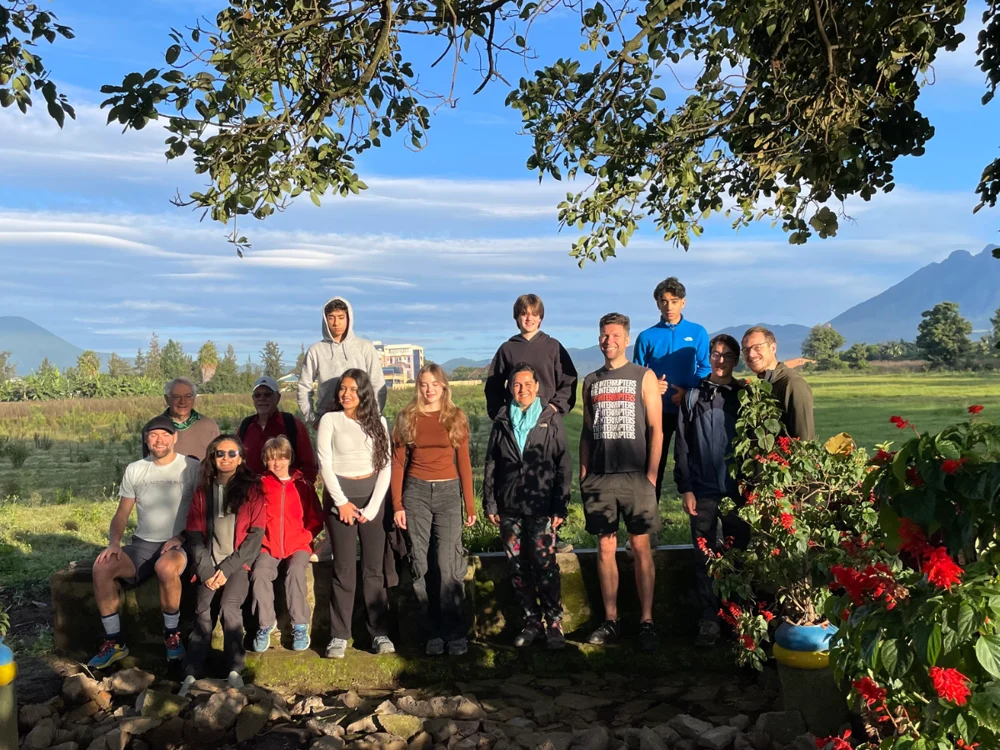As a pinnacle of Learnlife's Intensives programme, this April, a group of learners and families embarked on a 10-day journey to Rwanda, a trip that transcended the conventional bounds of a mere school trip. This immersive cultural journey into the heart of Rwandan life offered more than just sightseeing; it was a transformative experience which offered unparalleled access to local communities. Through uniquely personal encounters, learners gleaned profound insights into resilience, forgiveness, and the human spirit. Organised by Learnlife’s Co-Founder and Chief Learning Officer Stephen Harris, the trip offers a cultural experience far off the typical tourism path. Stephen has spent the last 20 years visiting the country and cultivating deep personal relationships there. These personal ties have given Learnlife the rare opportunity to create a deep cultural immersion experience for its learners. Embarking on a journey to Rwanda is more than just a voyage across borders; it's a profound immersion into a nation with a history both harrowing and hopeful, a land of breathtaking landscapes and resilient people.Africa’s smallest nation, Rwanda, is approximately the size of the U.S. state of Maryland or the country of Belgium for a European reference point. Although small, it nevertheless offers great opportunities for cultural and conservation tourism, including visiting its endangered mountain gorillas. Yet, its complicated political history also offers another kind of learning experience that teaches important lessons about history and humanity. Knowing Rwanda's history is essential to understanding it deeply, in all its forms. Its history is marked by complex socio-political dynamics, notably culminating in the tragic genocide of 1994. Before colonisation, Rwanda was a kingdom characterised by a hierarchical social structure. Since the 1920s, Belgian colonial rule exacerbated ethnic tensions between the Hutu majority and the Tutsi minority. Rwanda itself became an independent nation in 1962, however the seeds of internal division were already sown.Post-independence, political instability persisted, culminating in the genocide where over one million Rwandans lost their lives in just 100 days, an estimated 800,000 of which were Tutsis.During the trip, learners and their families were educated on this tragedy and the historical contexts that led to it. They had the opportunity to hear firsthand from survivors about their experiences and learn about the remarkable journey of reconciliation and renewal that defines Rwanda.Even for mature learners, these lessons can be challenging to grapple with and raise more questions than answers. Learners came away with a deeper understanding of empathy and humanity than any learning experience could provide. 
Rwanda: Lessons in Resilience, Community & Hope
Top Posts

How to Deploy a Python Flask Web App on Windows Server for High Traffic and Best Performance
![Web Dev Full Stack Course: 10 Best Full Stack Developer Courses [2025]](/static/blogs/6e60d544bdc04c64bab4cad24fead782.jpg)
Web Dev Full Stack Course: 10 Best Full Stack Developer Courses [2025]

What Are the Best Programming Languages to Learn in 2025?

10 Reasons Why You Need a Data Science Certification to Stay Ahead

Rwanda: Lessons in Resilience, Community & Hope
